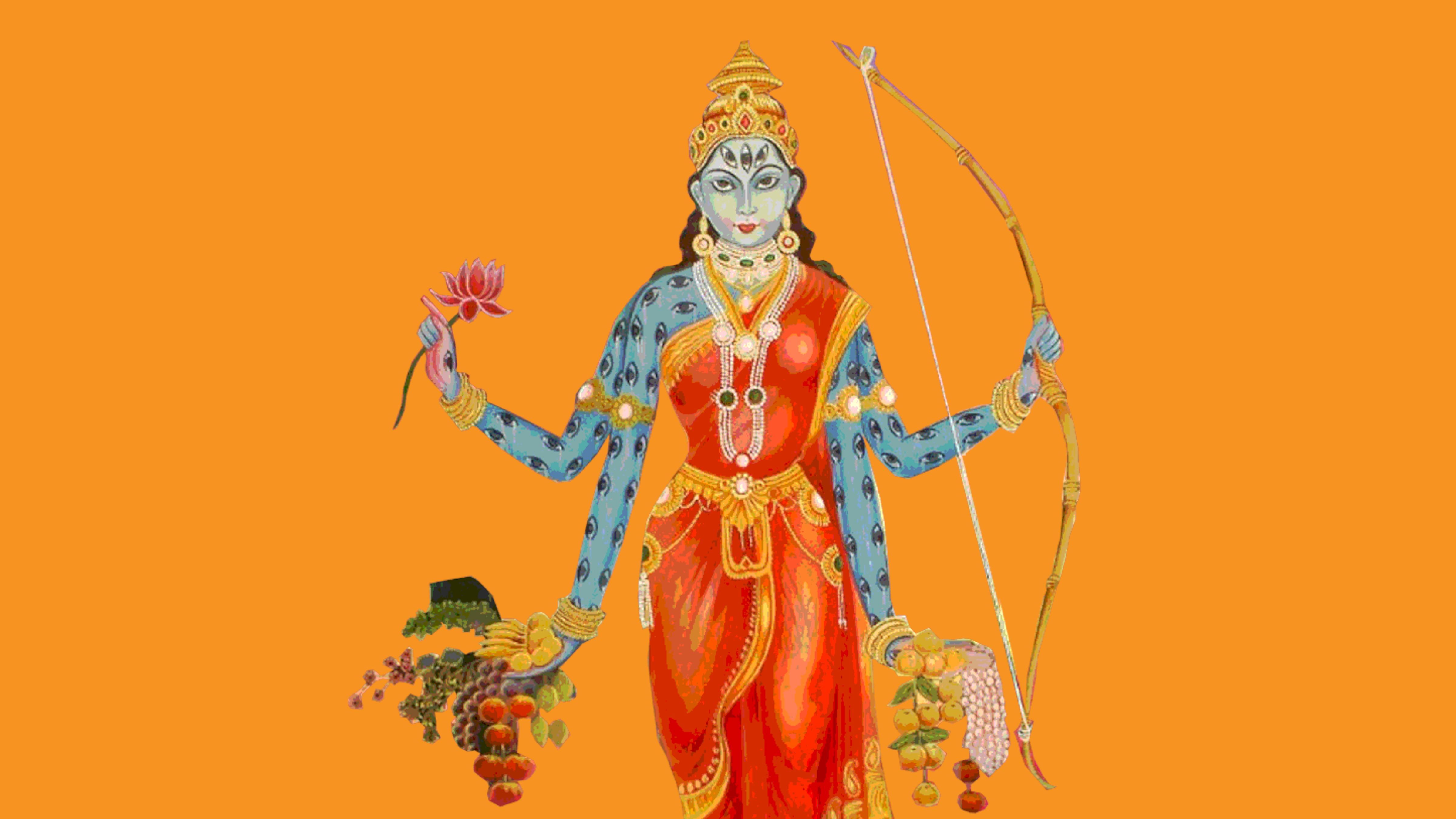Shakambari Navaratri begins on Pausha Ashtami to Pausha Poornima. Pausha is the third-month post-Deepawali festival, a winter season, and hence connected with wellness and well-being through nourishment.
By Mala Kapadia, Professor, Director of Wellness Practice & Resident Mentor
India is a land of Nature connected living. Our festivals are rooted in helping us understand and celebrate our interconnectedness with Nature. The UN’s Sustainability Goals are a sad reflection of how most of the world is disconnected from Nature and hence need external compliance and direction for a way of life. To understand the significance of our festivals and celebrate their wisdom, hence becomes our Dharma, or responsibility as Earth Citizen.
Shakambari Navaratri is one such celebration of Nature connected Feminine Wisdom, a lesson for feminine leadership. All the Devi symbolism in Vedic literature ultimately reflects our own Shakti or power within. Nav Ratri is nine nights. In India, the Devi or Feminine aspect is worshipped in many ways, some of them are the Navratri spread over the entire year according to the Lunar calendar. Shakambari Navaratri begins on Pausha Ashtami to Pausha Poornima. Pausha is the third-month post-Deepawali festival, a winter season, and hence connected with wellness and well-being through nourishment. This year the dates fall from 21st January 2021 to 28th January 2021.
Every festival has it’s own story. These stories are symbolic, and as we go deeper into the significance, every time a new insight gets generated.
Long years of famine. Out of compassion for humanity, Devi Parvati came on this planet as Devi Shakambari. She is the Goddess of Greens or Ecology. Even today there are places where She is worshipped in temples, as Kuldevi. For us, the time is not of famine as a crisis but GMO, Pesticides and global food chain is the crisis. Reviving Shakambari worship is awakening in each of us the power to kill the demons that are not sustainable and making this planet, Mother Earth green again.
Goddess Shakambhari is the incarnation of Goddess Bhagwati. She is also called “The Bearer of the Greens”. According to the scriptures, all the vegetarian food products are regarded as the prasad or sacred offerings of Shakambhari Devi. According to Devi Bhagavatam, the story of Shakambari Devi states that once there was a demon named Durgam who acquired all the four Vedas by practising great hardships and penance. He also gained the boon that all prayers and worships presented to the deities will be reached to him and thus Durgam became indestructible. After acquiring such powers, he started troubling everyone which resulted in the loss of Dharma and hence there were no rains for hundreds of years which caused conditions of severe drought. All the sages were hidden in the Himalayan caves and performed continuous Yagas and Tapas to seek the help of Mother Goddess. Hearing to their hardships and cries, Mother Goddess incarnated as Goddess Shakambari bearing grains, fruits, herbs, pulses, vegetables, and greens. The term Shaak denotes vegetables and thus the Goddess was famous by the name Shakambari Devi. Seeing the plight of the people, tears rolled down from the eyes of Goddess Shakambari for 9 days and nights continuously. Thus, the tears transformed into a river and there was an end to the condition of drought.
The Goddess also fought against Durgam to save humans and the rishis from the cruelty of the demon. Goddess Shakambari manifested 10 powers within her and with all her powers killed Durgam. She returned all the Vedas to the sages and was also named Durga as she killed the demon Durgam.
As the world is recovering from the Pandemic, with the Earth contaminated due to the greed of humanity, compromising their wellness and well-being, we all need to celebrate this Navaratri by conscious living and fighting the demon of GMO and Industrialized farming, pesticides and processed food, this Navaratri, let us revive the lifestyle of freshness in food and body-mind-spirit get revitalized.
लोका: समस्ता: सुखिनो भवन्तु

